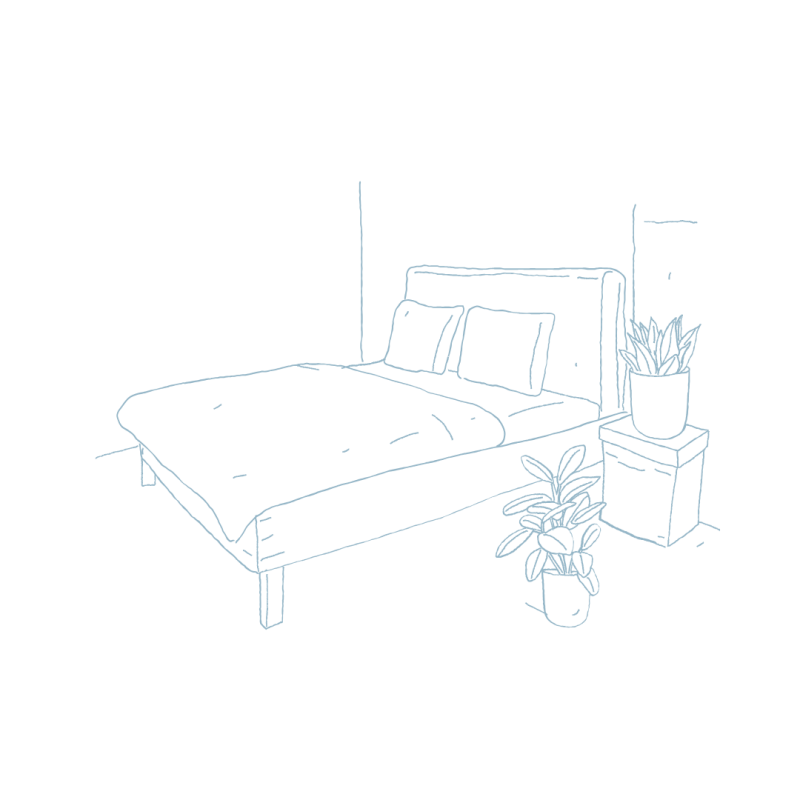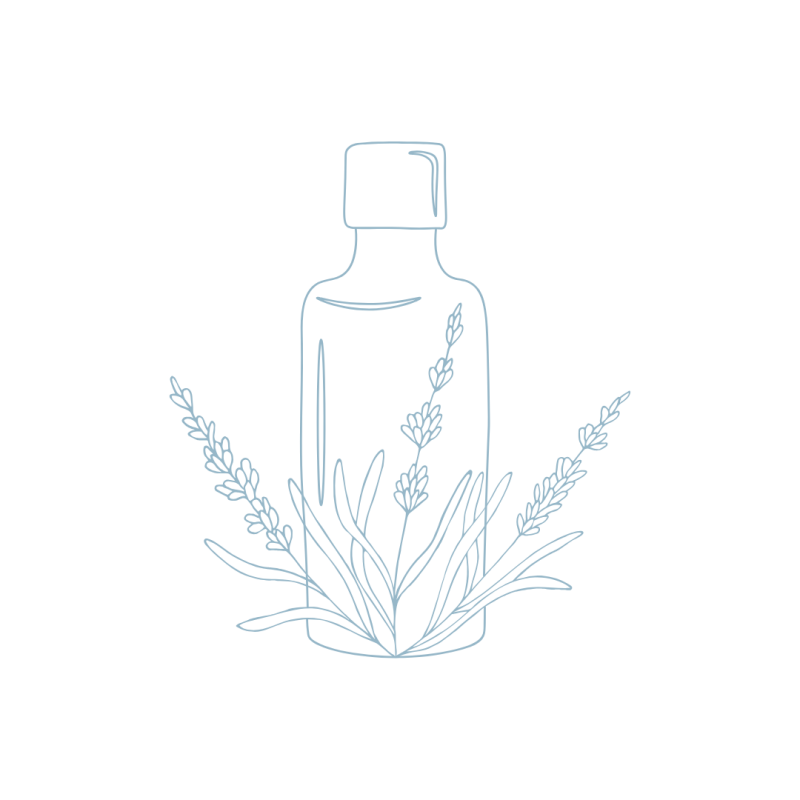
Welcome to the 5th in the series of the Reclaiming Your Body series looking at one of the biggest issues my clients face: sleep. Or rather, lack of it.
Sleep difficulties are a very normal impact of trauma; our bodies are wired to be hyperalert to any threat in our environment so sounds, smells, textures that we barely even noticed previously can keep us awake all night in addition to our bodies being pumped full of adrenaline and other hormones that can make sleep feel impossible. It is common for clients to struggle to fall asleep and/or stay asleep; navigate nightmares or sleep terrors; and find that even when they do sleep, they wake feeling unrefreshed, unrejuvenated and unrested.
It can be tempting to use alcohol, drugs or sleeping pills to numb the distress and pain, to knock ourselves out into dreamless sleep. However, whilst this might work short term, it can wreak havoc with our natural sleep cycles and create a cycle of anxiety and avoidance, leading to more intense and long-lasting sleep difficulties.
Sleep is such a big topic I have split it into three posts focusing on 1) environment 2) routine 3) managing nightmares. Read on to find out how simple changes to your environment can take you closer to a restful sleep.

It’s important to acknowledge that not all clients suffer from an inability to sleep, which this post focuses on. Some clients may find they are sleeping deeply for long periods of time, sometimes for 12 or more hours. This is also a very normal reaction to trauma and can occur due to emotional exhaustion and a need for the body to recover from such intense emotions and stress chemicals. It can also provide an escape from reality and the intensity of thought, images and sensations that often accompany trauma. So, if you fall in this category, know that it is normal and perhaps jump ahead to Sleep Part 2, which focuses on routine to support you to stay in a steady cycle. Bear in mind that excessive sleep can be indicative of depression and can become an issue in itself, causing hypersomnia. If your long sleeps are lasting more than a few days post traumatic incident. If you are worried about your sleep then do go and see your GP.
Why managing sleep difficulties for trauma is so important

Finding natural ways to reclaim your cycle by creating an environment and routine where you feel safe to rest, and developing tools to manage nightmares will help enormously on your healing journey. Feeling rested will benefit you physically, emotionally and mentally and support you to make helpful decisions and actions as you navigate your way through trauma and loss, which lets face it, is hard enough when we have had a decent sleep, but can feel impossible without.
Finding natural ways to reclaim your sleep by creating an environment where you feel safe to rest will help enormously on your healing journey. Quality sleep benefits you physically, emotionally & mentally and will help you navigate your way through trauma and loss, which lets face it, is hard enough when we have had a decent sleep, but can feel impossible without.
We’ve all probably experienced short term bouts of sleep difficulties, and the majority of us have had wild weekends with very little sleep in our heydays, but sleep difficulties from trauma can be persistent and have a huge impact on our lives, at a time when we most need to be functioning.
Lack of sleep can create cognitive difficulties creating a lack of focus, brain fog and negatively impacting our memories and decision making, planning, organising and sequencing skills making school and work feel impossible. It can create an immense cognitive, emotional and physical fatigue, leaving us short tempered and seriously effecting our relationships. A consistent lack of restful sleep makes us more risk and accident prone, especially when driving so it really needs to be addressed.
Many of my clients report that bedtime and ‘going to sleep’ are the hardest parts of their day. There is nothing to distract them from their intrusive thoughts and relieving of events, and some report that even if they do sleep they are woken via vivid nightmares. For others, sleeping means waking up and remembering, and they avoid sleep to avoid the pain of that moment in the morning.
Why trauma makes sleep so challenging
When our bodies and minds have been traumatised by traumatic loss, abuse and relationships, we are pushed so far out of our Window of Tolerance and away from our Rest & Digest response into our Fight/Flight/Freeze response; sleep becomes a deeply unsettling, if not distressing, experience.
We can become trapped in the past, relieving traumatic experiences in the present moment. Instead of being in the here and now, we get stuck in the there and then. Our bodies are hyperaroused feeling as if they are in immediate danger and therefore, sleep remains a challenge.
Changing your physical environment

Changing our physical sleep environment can create a sense of novelty that supports our brains to recognise that things are different and create a sense of time difference: the trauma is no longer happening to us.
Changing our environment helps our brains to differentiate between the past and the present and signal a sense of safety taking us closer to our Windows of Tolerance. Consider making the following physical changes to support your sleep.
- If possible, rearrange the furniture in your bedroom so that you have a completely different outlook across your room
- Redecorate your bedroom. This doesn’t have to be a full on Changing Rooms scenario, but where finances allow, perhaps invest in a new lampshade, rug, throw or scatter cushions of a different colour scheme; put up new photos or pictures; replace your curtains or blinds with a different colour of pattern
- Change the colour and material of your bedsheets, for example, if you previously had cotton consider changing to a brushed cotton, flannel set or silk. Your skin holds many receptors that send messages to your brain and as your body experiences a different texture it will underscore the difference of ‘then’ and ‘now’. Consider changing the texture and colour of your sleep wear too.
- If your trauma involved a ‘bed’ or you lying flat, you may want to consider investing in a triangle pillow that supports you to sleep upright or reclined in a chair rather than in a bed itself. Additionally, you may want to forego traditional bed pillows and use smaller scatter cushions made of different fabrics and textures, and use a warm blanket or sleeping bag rather than a duvet.
The power of scents for trauma sleep difficulties

- Smell is a powerful trigger. Consider changing the brand or scent of your washing detergent and softener; change the brand or scent of your shampoo and conditioner; and consider changing perfumes or aftershave.
- vaporisers can be used with essential oils to create a variety of moods for example, lavenders, chamomile, sandlewood and bergamots can promote relaxation, whereas lemon, rosemary, mints and basil can be used to energise. You may like to play around with the smells in your room to signify when its time to sleep and when it’s time to awaken.
- Consider using lavender pillows in your bed or using a sleep spray on your bedding and lightly misting over yourself to induce relaxation. You may even like to use roll on oils on you pulse points, or give yourself a relaxing hand or foot massage.
Sound for trauma sleep difficulties

Many clients report being hyper alert and hypersensitive to all sounds and can be awoken by simple creaking or gentle sounds from outside. You may choose to use ear plugs to block out noise (or keep one ear free for reassurance that you would hear danger if it approached). I recommend the natural wax ear plugs that form to the shape of your ear and don’t irritate, Quies are great.
Equally, many clients like to be distracted by sound or white noise to distract from their thoughts. In that case you may want to consider a bluetooth soft headband that doubles up as an eye mask and allows you to sleep comfortably on your side, whilst still listening to audio.
Yoga Nidra for Sleep
Yoga Nidra allows you to focus on your body and the voice guiding you into a deep state of relaxation. As it’s focusing on relaxing your nervous system, this is great for both distraction and sleep. My favourite practitioner, Ally Boothroyd has a playlist called Middle of The Night full of sleepy yoga nidras.
Meditiation
White Noise for Sleep
Some clients don’t want to sleep in silence but equally don’t want to be guided through words or be disturbed by the changing melody of music. Soundscapes of rain, waves, storms, or simple white noise can be incredibly relaxing and you can often find 8 hour videos on youtube so you won’t wake when your brain recognises the sound has stopped. You can also find sleep sound machines relatively cheaply for those who don’t want to rely on screens or don’t want to risk being woken by a sneaky advert.
Light and trauma sleep difficulties

It will depend on your own needs whether you want to have no distraction from light and sleep in complete darkness, perhaps with the lights and out and a sleep mask, or whether you want to be able to see in order to feel safe. If you fall into the latter category, consider soft night lights and wearing a thinner eye mask.
However, flickering lights from TV screens and alarm clocks, and bluelights from screens will most definitely interrupt your sleep. The Blue light from screens disrupts your circadian rhythm and will make your brain think it is time to wake, even if it is 2 am. If you need to use screens, I recommend purchasing a cheap pair of blue light filter glasses from amazon. It can be helpful to wear these up to two hour before bed anyway to help your brain understand it is nearly time to sleep. Additionally, you may want to use a redlight app such as Twilight to allow you to use your phone.
Best Place to Sleep for Trauma

In an ideal world you would want to be able to sleep in your own bed. It is absolutely okay if this isn’t possible. The goal is to get some restful quality sleep that will allow you to process the trauma and have the energy to navigate it through the waking hours.
If that means sleeping with someone else, on their floor, on your own floor or a sofa or a chair, so be it. The most important thing is that you feel safe and relaxed enough to sleep. Throw the “shoulds” and “musts” out of the window ("I should sleep on my own / I must sleep in my own bed") and ask yourself what it is you need to feel safe to sleep and start there.
Ideal temperature for sleeping and trauma
Sleeping in a room that is too cold or too hot can lead to a less restful sleep and mean you wake more often (which also means you will remember your dreams more and that might not be a good thing right now). Make sure you have opened/closed your windows, turned down your radiator as necessary or consider whether your need thinner or thicker duvets and sleep wear. Temperatures around 15-21°C are considered best.

So there you have it, a whole range of changes you can make that won’t appear in your typical list of sleep tips but can make a huge difference.
Trauma and traumatic loss can make our brains relive the past in the present moment. When our nervous systems are hijacked in this way we need to help our brains and bodies differentiate between the past and the present moment. The things in this post all help to tell ourselves “that was then. This is now. I am safe”. Let me know which ones have made a difference for you.
Next time we will be looking more at sleep routines for trauma and how to create a safe, predictable structure that induces restful rejuvenating sleep that you can put into practice in your 'new' bedrooms.
This post and its images are protected by copyright © Emma Cumberland. Please do not copy or reuse without permission.


Add comment
Comments